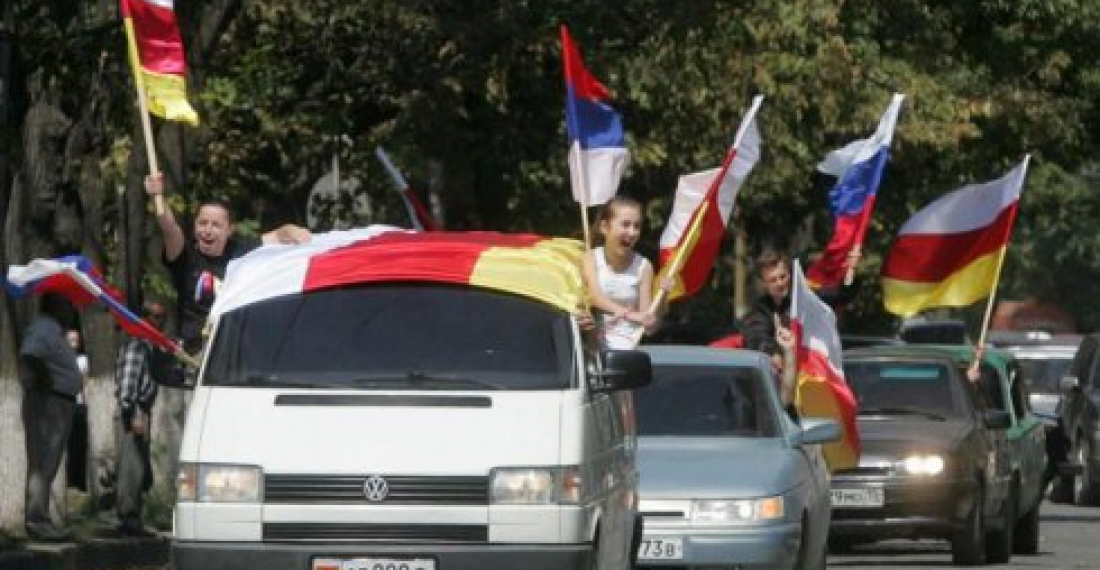In this op-ed for commonspace.eu, Dennis Sammut discusses Russia's recognition of Abkhazia and South Ossetia in August 2008, and says that it opened a Pandora's box, with wide-ranging and long term implications.
Diplomacy and international affairs tend to be evolutionary. Small steps taken over time come to define policy, and forge the world order. Every now and then a single act, is of itself significant enough to be recognised as a defining moment - one with wide-ranging and long term implications.
Russia's recognition of the Georgian separatist entities of Abkhazia and South Ossetia twelve years ago today - on 26 August 2008 - can be described as one such moment. It followed the short war that had been fought that month between Russia and Georgia. The significance of the war paled, compared to the act of recognition, and the formal establishment of diplomatic relations between Moscow and the de-facto leaderships in Abkhazia and South Ossetia.
When the Soviet Union dissolved in 1991, power reverted back to the fifteen constituent republics of the Union, who were subsequently recognised as independent countries within their existing borders by the international community. This was not because these borders were universally accepted or undisputed. Far from it. In Russia itself there were secessionist movements, and attempts to change the internal boundaries. Beyond Russia in the rest of the former Soviet space there were long standing disputes, and violence had already erupted before the USSR dissolved (as in Nagorno-Karabakh) or immediately afterwards, (as in South Ossetia and Abkhazia). Accepting the existing borders therefore became a necessary requisite to avoid further warfare, and to secure international recognition. Russia, up to this point, had been a strong proponent of this principle. When secession tried to raise its head within it, as in Chechnya, it crushed it ruthlessly. Russia's own creation, the Commonwealth of Independent States (CIS), strongly endorsed the sanctity of the existing borders, a principle that was also underpinned by the Helsinki Final Act of 1975 - that historic document that became the rule book for affairs in Europe and which helped defuse the dangers of the Cold War.
Russia's recognition of Abkhazia and South Ossetia in August 2008, came as a surprise and unsettled the international community, but most of all it unsettled Russia's immediate neighbours in the former Soviet Union. Russia had torn up the rule book on which the post WWII and Cold War European order was based. Its subsequent annexation of Crimea, and intervention in Ukraine in 2014 stem directly from that act in August 2008. It opened the way for further similar action in the future. No wonder all the former Soviet Republics, even the ones most close to Moscow, have stopped short of following Russia in recognising Abkhazia and South Ossetia. The Kremlin had opened Pandora's box and they wanted no part in it.
Russia understood there was a cost to pay. Georgia immediately broke off diplomatic relations and left the CIS. The international community was indignant. The reason why it was ready to pay the price is that Putin's Russia is a revisionist state. Putin's nostalgia for the former Soviet Union, shared by many Russians of his generation, colours his judgement. Playing by the rules is not as important for Putin as recreating Russia as a global power, with spheres of influence, protectorates and forward bases.
Today, in Tskhinvali and Sukhumi they are celebrating the anniversary of Russian recognition and establishment of diplomatic relations. Yet everyone knows that the Russian Ambassadors in Abkhazia and South Ossetia are more Viceroys than diplomatic emissaries. The territories are de facto protectorates, where Russia exercises control over most important things, including defence and foreign affairs, and, as has been proven a number of times already, Russia keeps a veto on who sits in the no 1 position in both territories, even if it doesn't always get the person it wants the first time round.
This situation may please some Abkhaz and Ossetians for the moment. They see it as the less of two evils, the other being in the same situation but under the Georgians. They cite historical events to prove their point.
But the fact that twelve years later only a handful of largely insignificant countries have followed Russia in extending diplomatic recognition should have a sobering effect on their perspective. The unilateral change of international borders does not bring peace and security, but only further conflict and instability. The long term solution for Abkhazia and South Ossetia is not being a protectorate of Moscow and a military base for large Russian armies, but through peaceful coexistence in the Caucasus region in a mutually acceptable political framework. For Moscow too, the decision to recognise Abkhaz and South Ossetian independence is not irreversible as is sometimes claimed. There are other modalities that Moscow can follow., and even honourable ways out of the present impasse. Although it does not admit it, Russia desperately wants to restore ties with Tbilisi. This can only happen if Moscow takes a step back. Otherwise 26 August may well be remembered not as the day Russia recognised Abkhazia and South Ossetia, but rather as the day Russia lost the friendship of Georgia for ever.
Source: Dennis Sammut is the Director of LINKS Europe and a regular commentator on European security issues.
photo: A carcade in Tskhinvali celebrating Russia's recongition of South Ossetia (picture courtesy of RES News Agency, Tskhinvali)
The views expressed in opinion pieces and commentaries do not necessarily reflect the position of commonspace.eu or its partners






